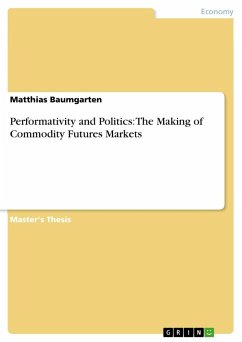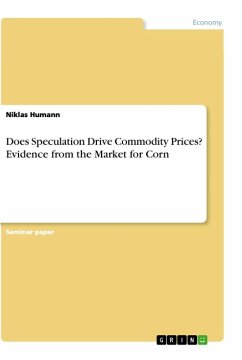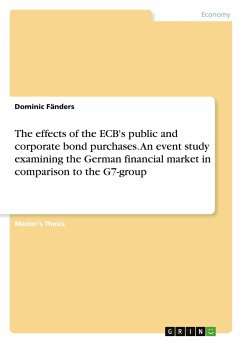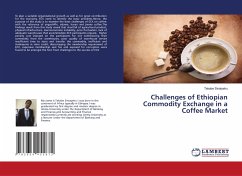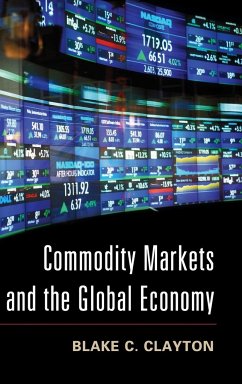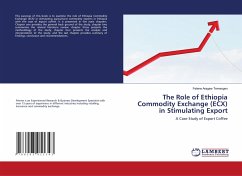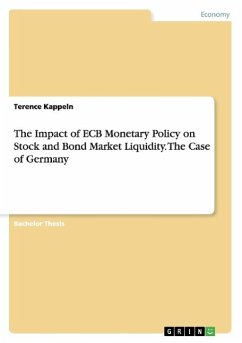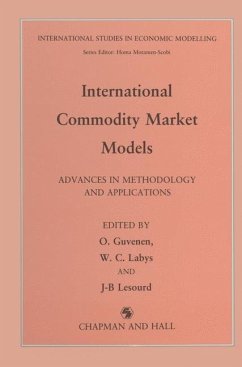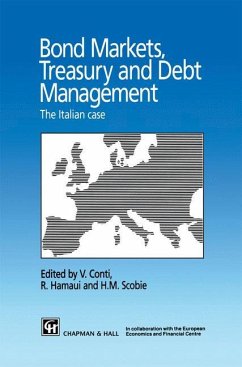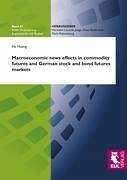
Macroeconomic news effects in commodity futures and German stock and bond futures markets
Versandkostenfrei!
Versandfertig in 1-2 Wochen
55,00 €
inkl. MwSt.

PAYBACK Punkte
0 °P sammeln!
A well-known concept in modern capital market theory is that only systematic risk factors affect security prices. Macroeconomic announcements are among the most important news for financial markets because the state of the economy is a prime candidate for such a source of non-diversifiable risk. This book investigates the effects of US macroeconomic news on three financial markets that have received less attention in the literature so far. The markets of interest are the commodity futures market, the German stock index futures market, and the German bond futures market. I investigate not only ...
A well-known concept in modern capital market theory is that only systematic risk factors affect security prices. Macroeconomic announcements are among the most important news for financial markets because the state of the economy is a prime candidate for such a source of non-diversifiable risk. This book investigates the effects of US macroeconomic news on three financial markets that have received less attention in the literature so far. The markets of interest are the commodity futures market, the German stock index futures market, and the German bond futures market. I investigate not only price effects, but also liquidity effects as well as the channels of cross-border information flow. I find that commodity markets as well as international stock and bond markets are likewise affected by the release of US macroeconomic news. The strength of the commodity price response depends on the state of the economy and news about the US economy is more important for German stock markets than domestic economic news. For an investor in any of these markets, this book provides valuable information on how to adjust his trading strategies around the release of macroeconomic news. Moreover, my findings contribute to the understanding of cross-border information flow. First, I find that both domestic and foreign economic news induce significant price and liquidity effects. Second, I find that there are two important channels of information transmission for foreign news: the direct response to the news and the indirect response to the foreign response to the news.




